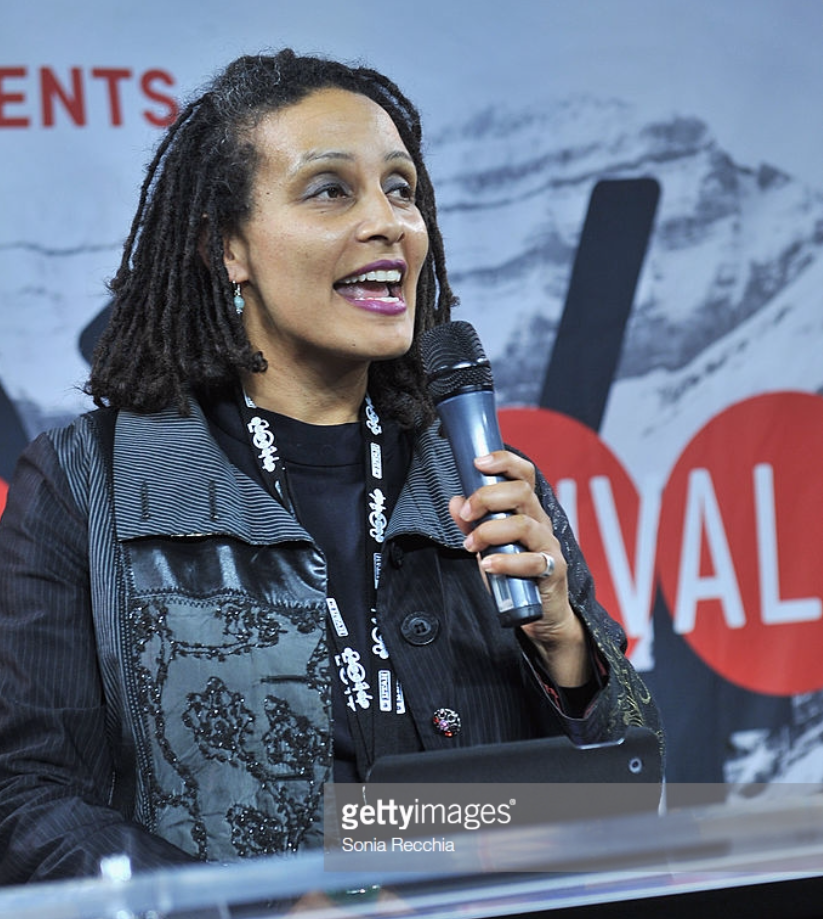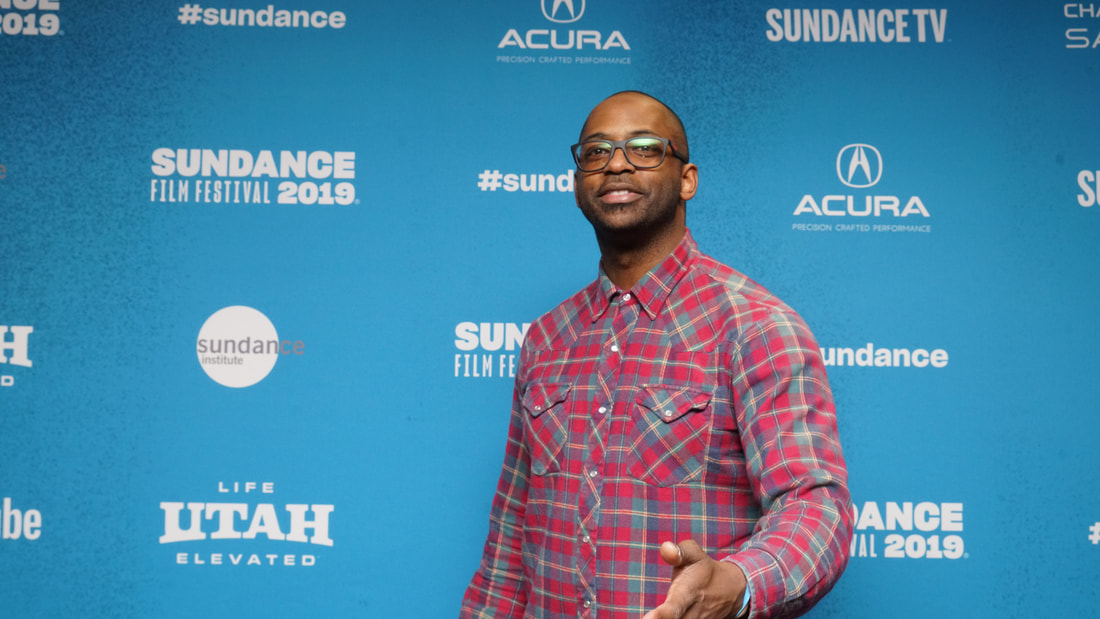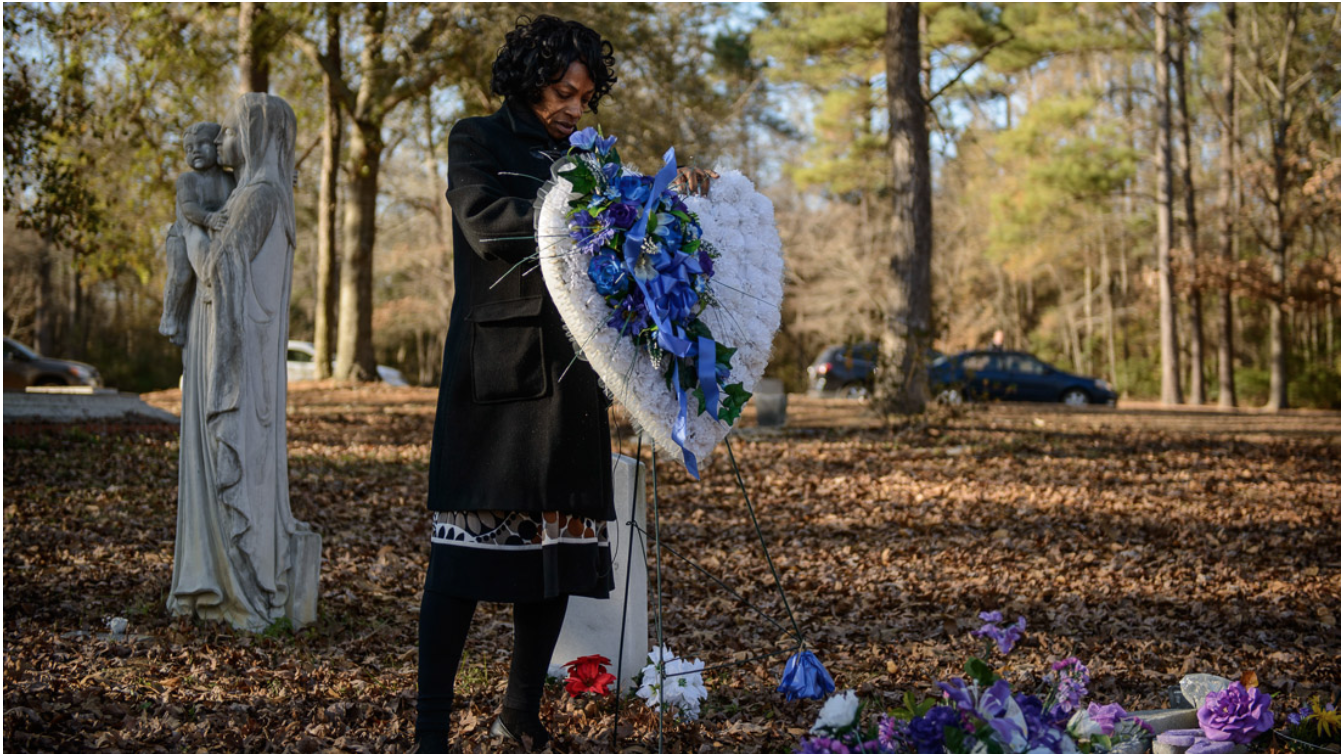|
The director of the Institute's Documentary Film Program also talks the value of "press inclusion" with Nonfictionfilm.com
I owe a lot to Tabitha Jackson, the Sundance Institute's Director of Documentary Film. My cell phone, for one thing (*more on that below). More importantly, I am indebted to her for sharing insights with me on a number of topics, including this year's slate of documentaries at the Sundance Film Festival, and her observations on the Oscar nominations announcement, which saw a majority of documentary feature nods go to films that premiered at Sundance last year.
We also discussed a new initiative this year at Sundance, where the festival partnered with the Nathan Cummings Foundation, the Ford Foundation, Netflix and other entities to offer stipends to a diverse array of journalists, helping to defray their travel costs to cover Sundance 2019. (As a member of the LGBTQIA+ community, I am very fortunate to have been granted one of the stipends). Our conversation has been edited for time. Of the five Oscar-nominated documentary features this year, three held their world premieres at Sundance last year (Of Fathers and Sons made its North American premiere at Sundance). That's quite an accomplishment. Tabitha Jackson: In addition to four of the films premiering at the festival, three of the films were supported by the documentary film program [at the Sundance Institute] which is to say that when they're in the middle and at the beginning of their creative process, when one doesn't know what they're going to be but one sees a bold vision from filmmakers, that that is also gratifying. The thing that I was particularly pleased to see was people like RaMell Ross with Hale County -- it's his first feature documentary and it is not using conventional narratives. His ambition is to really see the way the black body is represented on screen and in cinema. He's intentionally trying to upend that through this film and that is not a film that you would necessarily expect to end up on the Oscar [nomination] list.
TJ: And the same with Bing [Liu], with Minding the Gap, a first time feature doc -- both him and RaMell exemplify communities that perhaps previously had not had access to the resources and to this ecosystem of filmmaking but are now not only changing the language of what we see but are being recognized by places like the Academy. What that means is that then people engaged in this kind of cinematic culture are having to talk about it and having to watch these films because they're [nominated] and there's a kind of visibility that we hope will embolden other filmmakers to pursue their visions and take risks and don't feel that you have to make a particular kind of film if you're going to be recognized by the Academy.
There are no white male directors on that [Oscar nomination] list. It's notable.
TJ: The new kind of cinematic language that are being expressed in this [nomination] list -- the fact that it's international, the fact that it includes first-time filmmakers, the fact that -- and this is not a victory in itself -- but there are no white male directors on that list. It's notable. The question one then asks is this a blip or is there a reason why this has happened this year. And I think one answer might be with the Academy intentionally opening up the people who are voting members to be more representative of the population at large, and certainly of the filmmaking population, means you're going to get a different kind of film recognized and anointed and projected forward. And if that is the reason why that happened this year I'm extremely excited to see what's going to come next.
TJ: One of my disappointments [is that] documentaries are eligible to be nominated for Best Picture but you never see them on there. There are titles that clearly through their box office performance showed that audiences are appreciative, hungry for this kind of work and there's no reason why we shouldn't be considering films like this up against the other ones that are vying for Best Picture. So there's still something in the psyche that says there are movies and then there are documentaries. I think that what the summer showed us is that actually a ticket-buying public is not necessarily making that distinction, so the Institute needs to be a better job of breaking down those barriers.
What observations would you make about this year's slate of documentary films at the Sundance Film Festival? TJ: In terms of themes, I'm struck by work dealing with democracy, threats to democracy, the rise of the right and journalism. The festival is not just about which films are going to sell the most tickets at the box office. It's like which ones are going to inform and change our culture and help us to a different understanding of the world in which we live. There is one I would mention -- Always in Season, a documentary directed by Jackie Olive. I mention this because it reminds both of Bing's film Minding the Gap and RaMell's to a certain extent. Jackie is somebody who spent 10 years making this film about lynching in the United States, from both a historical and a present-day perspective. And these are films with subject matter that people don't necessarily want to confront and so the job of the filmmaker or the artist is -- through the use of creativity and art -- to allow people to look at this and see it anew. And I just think it's such a powerful film and without festivals like Sundance to kind of catapult them into the culture with a propulsive force that a festival like this can have, films like this and filmmakers like this probably wouldn't find the support that they needed.
This is the first year for the Press Inclusion Initiative, a major undertaking to support diverse journalists at Sundance.
TJ: We're trying to ensure there is a representative critics corps who are writing about these films as they meet the world for the first time. We've greatly expanded our credentialing to ensure that the people who are going to write about this work when it first lands and situate it in the culture have enough of a variety of perspectives that there's a chance that one of them might "get it" (laughs). That's not a very elegant way of putting it. But it really matters. I suppose what I'm saying is it really matters who your first audience is, especially when they're translating that into a broader culture. And it makes a difference between what is bought and what is distributed and what is seen and therefore what lasts. And so it couldn't be more important. Write about the little films, too. It's so important to us not just what happens on the mountain but what gets off the mountain and that [question] of who chooses to cover it, talk about it, write about it, it's all part of this ecosystem. So much of it is about this curation and people can do that as individuals now and not just as big media organizations.
*Editor's note: re that reference to Tabitha Jackson and my cell phone, I dropped my phone near The Canyons while sprinting to catch a shuttle to see RaMell Ross at the premiere of his short doc Easter Snap. When I realized the phone was missing, I thought "that's the end of that" (well, perhaps a few expletives were uttered as well).
But a kind person discovered the phone in the snow. It was still on and in an attempt to identify the owner he cleverly called the most recent numbers in the phone log. Eventually he reached Tabitha Jackson, because Tabitha and I had spoken by phone for the interview transcribed above. Long story short, poor Tabitha was then pressed into service to reunite me with my phone, a mission she and others with the Sundance press office successfully accomplished, for which I am very grateful!
|
AuthorMatthew Carey is a documentary filmmaker and journalist. His work has appeared on Deadline.com, CNN, CNN.com, TheWrap.com, NBCNews.com and in Documentary magazine. |
- Home
- News
- Videos
-
Galleries
- 2019 Tribeca Film Festival
- Full Frame Documentary Film Festival
- 2019 SXSW Film Festival
- SXSW 2018 Gallery
- 2019 Sundance Film Festival
- Outfest 2018 Photo Gallery
- Outfest 2017
- Sundance 2018 Photos
- 2017 LA Film Festival
- 2017 Cannes Film Festival
- Tribeca Film Festival 2017
- SXSW 2017 Gallery
- 2017 Berlin Film Festival
- Sundance 2017 Gallery
- 2016 Los Angeles Film Festival
- Cannes Film Festival 2016
- SXSW 2016 Gallery
- Berlinale 2016 Gallery
- Sundance 2016 Gallery
- Filmmaker Gallery
- About
- Contact
Proudly powered by Weebly
- Home
- News
- Videos
-
Galleries
- 2019 Tribeca Film Festival
- Full Frame Documentary Film Festival
- 2019 SXSW Film Festival
- SXSW 2018 Gallery
- 2019 Sundance Film Festival
- Outfest 2018 Photo Gallery
- Outfest 2017
- Sundance 2018 Photos
- 2017 LA Film Festival
- 2017 Cannes Film Festival
- Tribeca Film Festival 2017
- SXSW 2017 Gallery
- 2017 Berlin Film Festival
- Sundance 2017 Gallery
- 2016 Los Angeles Film Festival
- Cannes Film Festival 2016
- SXSW 2016 Gallery
- Berlinale 2016 Gallery
- Sundance 2016 Gallery
- Filmmaker Gallery
- About
- Contact






 RSS Feed
RSS Feed